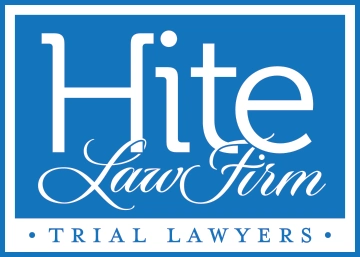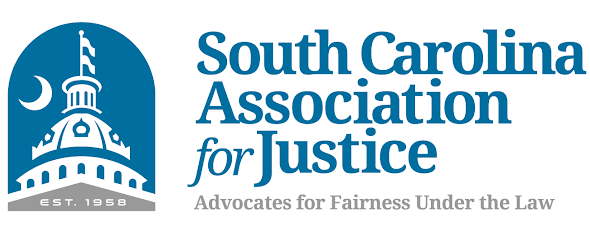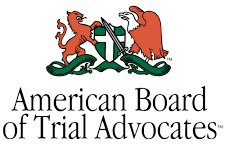Most lawsuits involve a single plaintiff versus a single defendant. However, there are more complex cases with multiple parties who contributed to the accident in some way.
In these situations, these parties could be named as defendants in the lawsuit. There are potential benefits to identifying and bringing into the lawsuit all persons or entities who may have been liable for the victim’s injuries.
A skilled personal injury attorney at our firm can examine the facts and help determine whether there is evidence to name more than one party as a defendant in your case. Count on the Hite Law Firm Trial Lawyers to pursue justice from all parties if we represent you.
Can Multiple Defendants Be Named?
Not all personal injury lawsuits are between a single plaintiff and a single defendant. The simple reason is that some cases involve complicated facts where several different parties play different roles in causing an accident or injury.
South Carolina law allows for multiple defendants to be sued and for liability to be apportioned among them. There are rules and limitations for doing so, but in essence, several individuals, companies, organizations, and even governmental entities can be held accountable for negligently harming the victim.
Once a total amount of damages is determined at trial, the defendants can ask the court to assign percentages of liability that may be attributable to each one. Basically, the defendants may end up arguing amongst themselves about who should pay what amount of the victim’s award.
It is in the plaintiff’s interest that those who can afford to pay should pay more, but the determination of shared liability must be made based on how responsible each defendant actually was.
These matters do not necessarily have to be resolved in a trial. Since many civil lawsuits, including personal injury cases, settle out of court in mediation or otherwise, the plaintiffs and defendants may come to an agreement on which party should pay what amount. An experienced personal injury lawyer can represent you both in trial and mediation.
What Are Some Examples of Cases Involving Multiple Defendants?
It’s important to note that just because many people were present at an accident scene does not necessarily mean they were all responsible for the victim’s injuries. On the other hand, there may be parties who were not present at the time of the accident or who are less obviously responsible and could be named as defendants.
These are a few common examples where there could be multiple defendants in a lawsuit:
Truck drivers and employers
Large trucks are heavy, dangerous vehicles that require training and background checks to ensure the driver knows what he or she is doing. Evidence of negligent hiring could implicate the driver’s employer as an additional defendant, even if the driver was also irresponsible.
Automobile drivers and car manufacturers
The manufacturer of the vehicle at fault may have installed defective braking or other systems that contributed to the accident. However, this doesn’t excuse the fault of the driver who may have been speeding when the wreck happened. Both parties could potentially be held liable.
Drunk drivers and bars
Every motorist has a legal duty to safely and reasonably operate his or her vehicle. That includes following traffic laws, including the ones that prohibit drunk driving. However, South Carolina statutes have adopted a doctrine known as dram shop liability, by which a bar, restaurant, or other business that knowingly sells or serves alcohol to a person under 21 years old or to a person who is visibly intoxicated can be sued after a drunk driving accident.
Foster parents and the Department of Social Services (DSS)
Foster parent abuse is a tragedy, and the parents who cause or enable such abuse can be held accountable. In certain cases, the state of South Carolina — specifically the DSS — may be found partially responsible for failing to conduct proper background checks or take other measures that could have prevented the abuse.
Governmental entities and contractors
Governments can be liable for negligence, although there are stricter rules for suing them. Because the government usually contracts with private entities for various services, this opens the door to naming those companies as well. Cases have happened when a visitor to a government building may have been harmed because a contractor permitted a property hazard that caused injury.
What Are the Benefits of Naming Multiple Defendants?
Suing multiple defendants can increase the amount of damages the victim receives. If a truck driver negligently causes an accident, for instance, the victim can generally sue the driver personally. However, the driver may have limited assets that can be used to satisfy a court judgment.
If the driver was working for his or her employer when the accident happened, however, the employer may share the blame. For instance, the company may have failed to conduct a proper background check which might have prevented the driver from being hired. The employer could possibly be named as a defendant.
If a judgment is entered against the employer, the employer’s liability insurance carrier could be required under its policy with the employer to cover the damages. This allows the victim to access insurance funds that could help pay the damages. A similar situation applies where multiple drivers share liability for a car accident. Their insurers may be required to pay the victim.
What Is Joint and Several Liability?
Joint and several liability is a legal doctrine that applies when two or more defendants who are responsible for causing an injury are both at least 50% at fault. If these parties are found to be jointly and severally liable, each has an independent duty to pay the full sum of legal damages to the victim.
This can be done in several ways:
- One defendant can pay the full amount of damages.
- The defendants can agree amongst themselves on how much they will each pay.
- One defendant can pay the full amount of the victim’s damages and then sue the other defendants to compensate them.
Joint and several liability makes it easier for the victim to be fully compensated for his or her losses. The plaintiff can enforce the court’s judgment against one or all of the defendants. Cases like the latter then become the defendants’ duties to sort out amongst themselves how they will pay the victim.
Talk to the Hite Law Firm About Your Legal Options
Note that joint and several liability is not available in all personal injury cases, so speak with an experienced attorney at Hite Law Firm Trial Lawyers about suing multiple defendants in a civil case.
Regardless, ask your attorney whether more than one party may be responsible for your injuries. Our firm can examine the facts of your case, advise you accordingly, and then get to work seeking the compensation you deserve. Contact us today online or at 864-664-2252 for your consultation.







